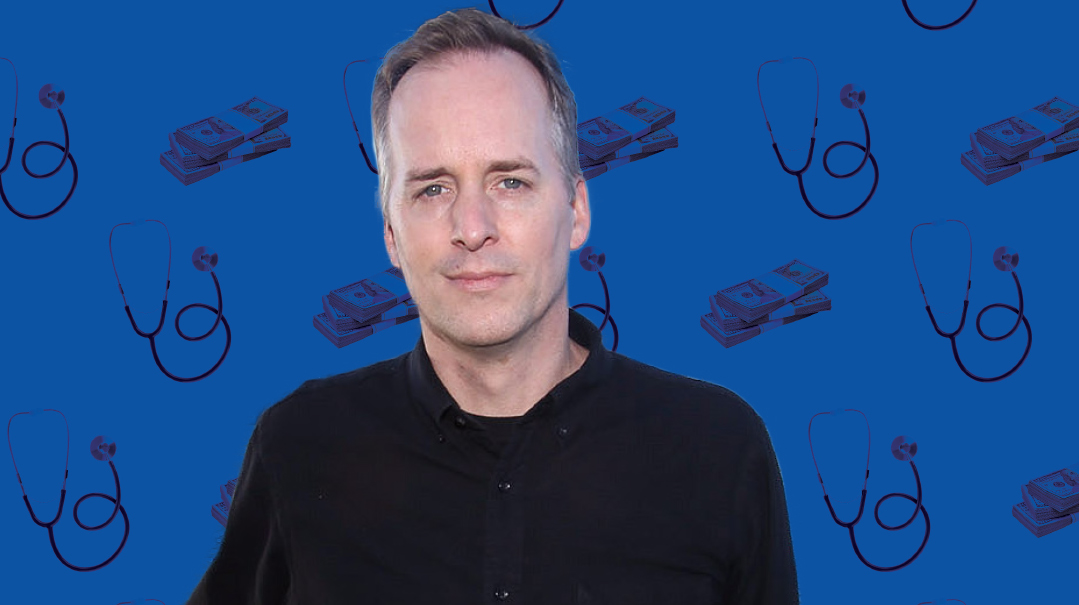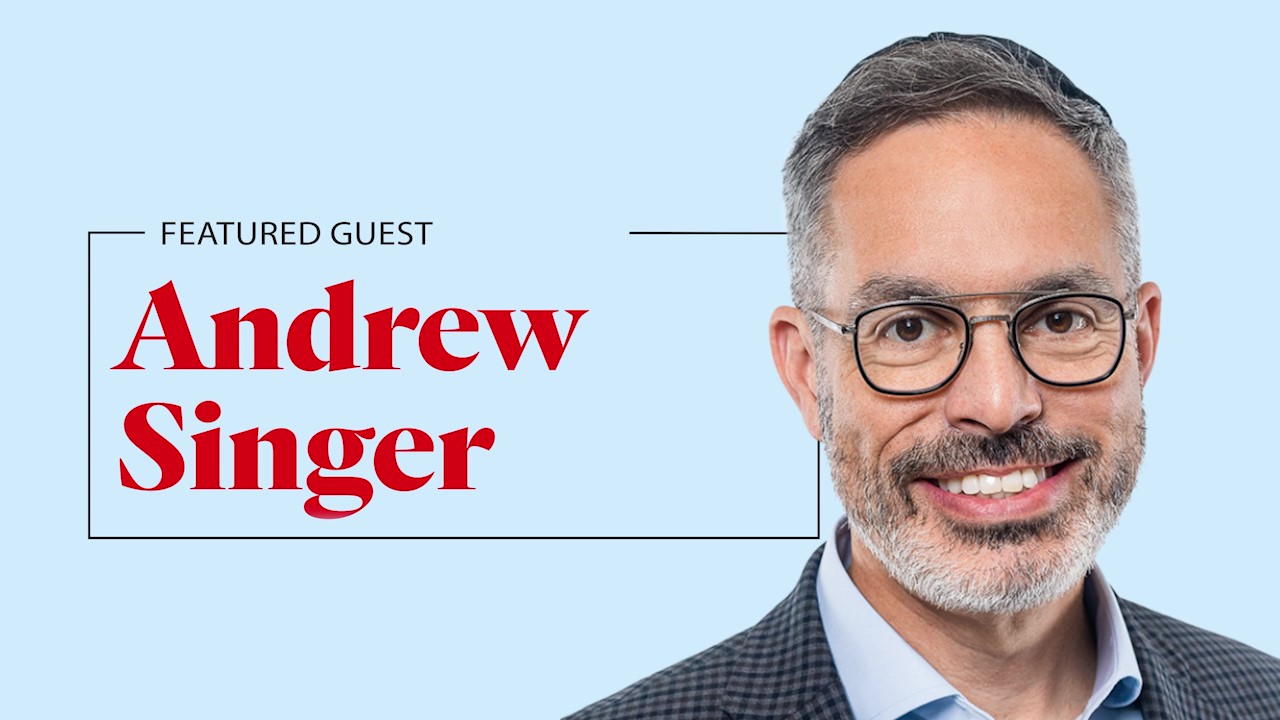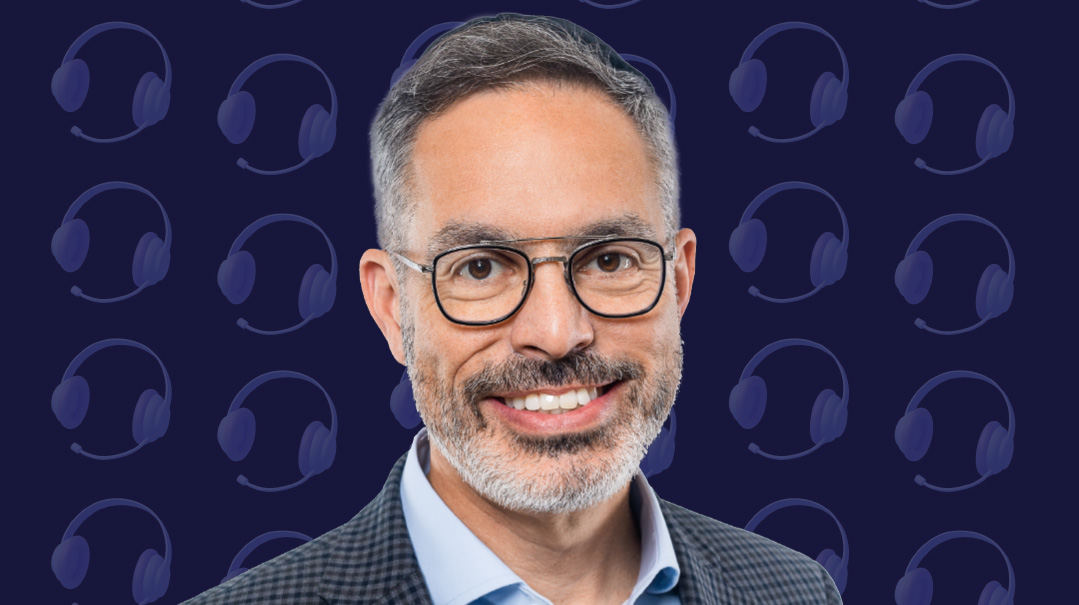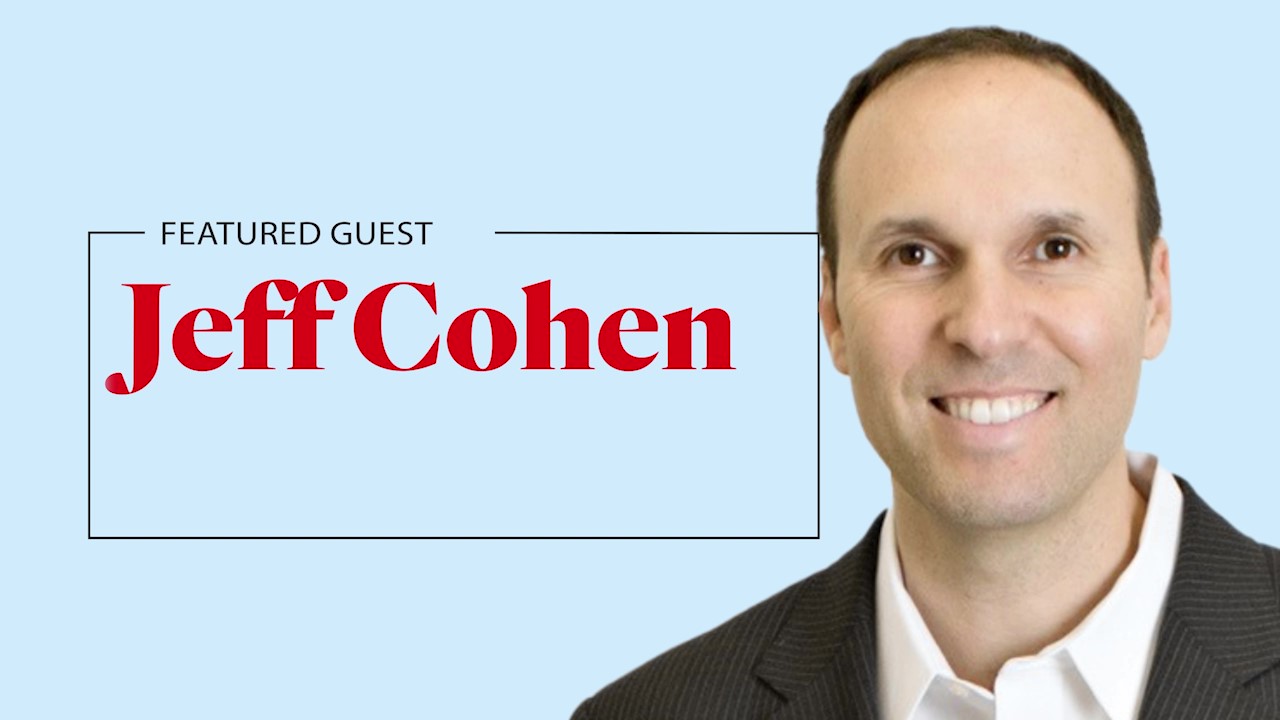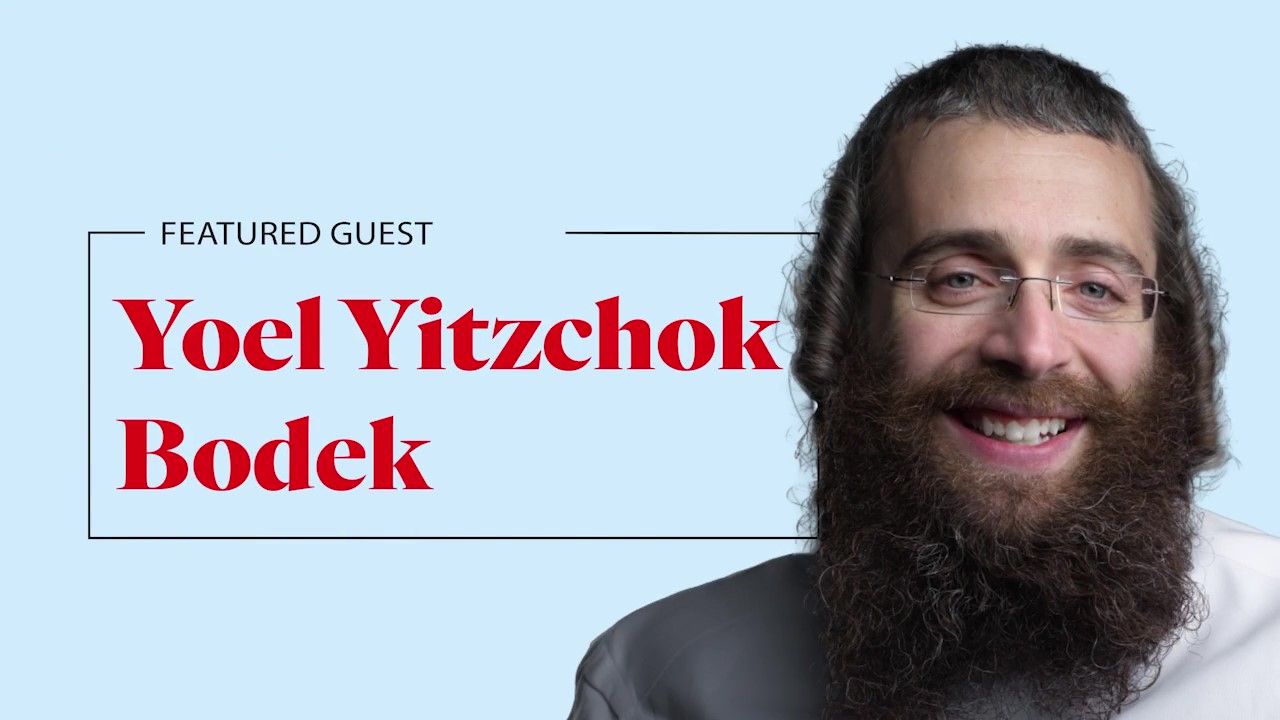Put Your Best Foot Forward
| August 22, 2023Pursue financial success with business coach Jeff Cohen
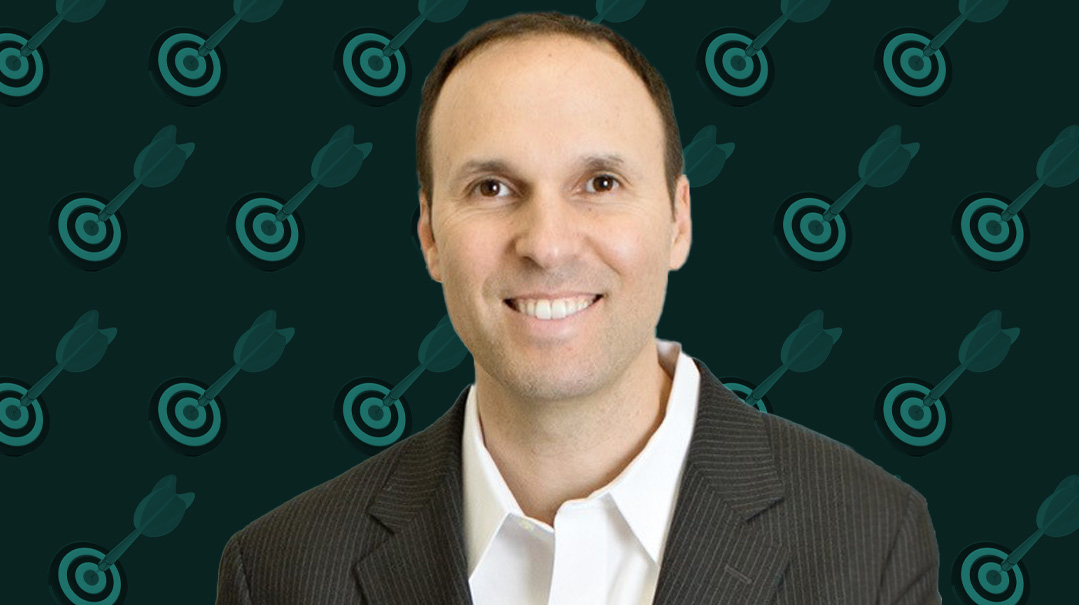
Jeff Cohen of Bergen County, New Jersey, runs JeffCohenMedia.com, whose specialty is consulting and coaching corporate and nonprofit executives to success. He also works with companies as an executive consultant to design and deliver solutions to help CEOs and senior leadership teams manage their businesses and employees successfully. Here he shares with Kosher Money and Mishpacha some of his background, and how his eventual career evolved from the parental model he’d seen at home.
Jeff is passionate about his belief that the journey to success needs to be an active one, and offers tips for anyone who wants to move over from the passenger seat and get behind the wheel.
You mentioned the parental footprint. Can you elaborate?
Sure. It’s a term that refers to the impact your parents and upbringing have on your perspectives — especially as they relate to careers, money, and finances. It’s normal when you’re young to accept what your parents say (or model) as fact. It influences your decisions.
In my case, one big footprint I absorbed was my parents’ approach to career. It went like this: Pick a track, join a company, and stay there for 40 years as you climb the corporate ladder. And it worked for my father; he was able to slowly and steadily grow his nest egg, and by the time he retired, thankfully, he had a significant amount saved.
The second footprint I credit to my parents is to always live within your means. My father pushed this message often. I particularly remember a neighbor who picked me up for car pool in a fancy sports car, decked out with all the latest features. The car was nice, but when we visited them a while later, in the heat of the summer — there was no air conditioning.
“I’m sweating,” I whispered to my dad.
He leaned over to respond and whispered back. “Take this as a lesson. When you get older and make money, you can invest it in extraneous things like a sports car, or in essential comforts like air conditioning — the choice is yours.”
The message stuck with me, and I still live with it today. My wife and I really think about this as we’re raising our own children. What are our values? Where do we prioritize our spending?
Making those decisions is crucial. Taking charge of your finances and of your career is a responsibility; don’t drop the ball.
Today you’re an executive coach, business consultant, and published author, but you didn’t start off there. Take us back to the start of your career — how did you get from there to here?
Following my parents’ parental footprint, I earned a dual degree in psychology and marketing from the University of Pennsylvania and the Wharton School of Business.
My first job was in the marketing department at American Express. I got the steady job and I’m just going to keep climbing, I told myself.
Happens to be, one of the job perks at American Express was access to a financial advisor. The counselor showed me a chart that depicted how my net worth would grow if I continued down the career path I was on — a slow and steady rise, not unlike the one my father had.
When I showed it to my father, he nodded and said, “Yep, that’s exactly how it works.”
I tried settling into the idea, because I’d been educated that it was the right thing, but I was never comfortable with it. There I was, 21 years old, and someone was saying that I needed to commit double the amount of years I’d been on Earth in order to achieve success.
Was that the only way? Maybe I could try something else?
That’s when I first realized that the corporate path might not be the only way to grow. I could take the many positive lessons I’d learned from my parents and adapt them to chart a new path.
At the time, I knew I didn’t want to climb the corporate ladder, but I didn’t know about any practical alternatives. I wasn’t raised in a family where people were starting businesses or buying real estate or writing books. Those options weren’t even on my radar. So although I knew early on that I didn’t want to stay corporate for my entire life, it took a while for my career approach and philosophy to actually evolve.
How did you eventually find your niche?
I’m very lucky that my first boss at American Express had a unique approach to leadership. When I had my first annual performance review, she said, “I can spend a full hour pointing out what you have to work on, and then we could spend the next two years focused on developing those areas. But here’s the reality. If there’s something you’re not good at, the best you’ll ever become at it is average. You’ll never be able to compete with someone who has a natural strength in that area.”
Instead of focusing on my weaknesses, she pointed out two things I’m naturally good at, writing and speaking, and encouraged me to spend the next few years becoming exceptional.
Until today, I’m grateful to her for encouraging me the way she did.
I didn’t leave right away, though. I stayed at American Express for another three years and eventually became a senior leader.
One day we had a conference, and one of the executive vice presidents got up to speak. He said something like, “I bet a lot of you sitting in your chairs today want to be me someday. So let me ask you — what do you think is the biggest factor that will determine whether you can reach this level someday?”
Someone raised a hand and said, “How the company performs.”
Someone else said, “How my team performs.”
And the EVP said, “It’s you. You can take control of your career and decide in which direction to take it.”
I remember sitting there thinking, Well, that’s obvious. But in truth, although I knew that to be true, I wasn’t actually doing it. I was moving around within the company to wherever they wanted to promote me, but not once had I taken control and said, “This is what I want.”
When did you start taking control of your career?
Again, I have to give a lot of credit to my managers. While I was still in marketing, they offered me a promotion. My manager told me about it and then put out a disclaimer. He said that the promotion would give me a lot more money, a lot more authority — but it wasn’t for me. He pointed out that he wasn’t sure I actually even liked marketing, and that every time he asked for something even loosely connected to people or human resources, I was the first to volunteer.
So my manager said that instead of giving me a promotion, he could arrange for me to transfer to another department — human resources. My manager realized, even before I did, that I really enjoyed speaking and writing in the context of helping people succeed in their jobs. That’s why I kept volunteering to run things like employee recruitment, employee satisfaction, or training and development programs for my team. Again, this was another step toward me realizing that I could take control of my career instead of my career controlling me.
Lots of people would love to feel they control their careers instead of their careers controlling them, in theory. Can you explain what that would actually look like?
I like to walk people through this exercise.
- Make a list of the last three jobs or roles that you’ve had.
- In the next column, write your primary responsibility at each. What were they paying you to do?
- In the third column, answer this: Regardless of what they were paying you to do, what was your favorite thing to do?
For me, when I think about what I enjoy most — the kind of work that doesn’t feel like work — it was always helping people find their paths, develop in their careers, and reach their potential. It’s not a surprise that these topics link so closely to how I earn my income today.
If someone’s last and middle columns are not matching up, what should they do to take charge of their career?
This is a critical point. When people become aware of this discrepancy between what they’re doing and what they want to do, their first reaction is often, “Oh, so I should quit?”
And the answer is no. That’s not usually the responsible thing to do. Personally, when I realized that my work wasn’t offering me the self-actualization I wanted, I brokered a deal with American Express. I arranged to stay with them for another six months, but only three days per week. I used the other two days of each week to build up my coaching and consulting business — which eventually became my main source of income. It wasn’t this big leap with no safety net, but rather a methodical approach to building up alternative income streams.
Was there a tipping point that finally pushed you to stop thinking about a career change and to actually make the move?
Yes — September 11, 2001.
At the time, my wife and I were dating. She lived in New Jersey, I lived in Manhattan. In the mornings, we would both pass through Port Authority on our way to work and meet there for a quick coffee, before taking the train together from the subway station that was literally in the basement of the Twin Towers.
On that morning, the line at the coffee shop was unusually long. It took us an extra 15 minutes to set out for work.
Finally, we started walking toward the Twin Towers, and it was confusing. Everyone was running toward us. The only way I could describe it is as though you’re walking into a stadium at the start of a game only to find a stampede coming out of the stadium toward you. The scene is clearly off.
Nobody had any idea what was happening. Was it a fire? Was it a gunman in the building? As we were trying to work it all out, we looked up and watched the second plane fly above us and directly into the second tower.
B’ezras Hashem we caught one of the last cabs out of downtown New York City and sadly watched the Towers crumble in the rearview mirror. We were so close to not making it and couldn’t stop thinking about how the towers were built specifically so they shouldn’t collapse right away.
When you experience something traumatic like that, you can’t help but take stock of your life. For me, it catapulted me into realizing that I needed to finally take action and take control of my career. Within months, I gave notice to my boss, and my wife and I were married soon after.
People are scared about the possibility of another recession. Any advice for that?
First, you have to get over this idea that the only way you’re safe is if you work in a corporation. I was in the corporate world and witnessed seemingly safe companies go through major layoffs. There were times I watched 30,000 people lose their jobs overnight. I was raised with this belief that you’re untouchable as long as you’re on the ladder, but it’s not true. If all your eggs are in one basket, it’s more likely that you’ll lose all of them.
No industry or company is completely safe. If you want to recession-proof your career, focus on building skills that are irreplaceable. You want to be the kind of person who will be difficult to replace even when times get tough.
What advice would you give to people in leadership positions?
Too many leaders look at their team and wish each person was something they’re not. Instead of fixating on what you don’t have, make a plan. Think about the skills you need to supplement, then decide whether you can develop these skills inside the team or need to hire out. It’s called “buy or build.” Can you hire professionals with these skills or can you invest to develop them using the people you already have?
Another thing I focus on when I coach people in executive-level positions is flipping the script. They’ve been in uncomfortable performance reviews before, those meetings where there’s tremendous pressure and they squirm in their seats as someone across the table points out all their flaws or “areas with room for improvement.”
By the time they come to me for coaching, they’re used to harping on the three to four things they’re not great at. I’m always trying to flip the script around on them to what I was taught in the business world and at Wharton. If something is a weakness for you, you can put in hours and hours and the best you’ll ever be is average. You just can’t compete with someone who has a natural gift.
Instead, find what you’re good at and highlight it. Invest in those skills, train in those areas. If you’re naturally this good already, imagine where more development will take you.
You mentioned that you didn’t grow up frum. Are there core differences you see in the mindsets of the religious and secular communities?
So when it comes to fulfillment in the workplace, a common denominator is that people want to feel they’re fairly compensated and that they’re appreciated for their contribution. If someone feels they’re not getting those two things, that they’re underpaid or not respected, they’re going to look for change.
A huge difference, though, is the approach to volunteering and charity. In the secular world, while there is a focus on these values, they’re considered optional to many people. In the frum world, they’re a given. From an early age, people understand the importance of giving maaser and will right away take off ten percent from their paycheck for tzedakah.
I’m also really passionate about religious growth… so much so that I started my own podcast called Saturday to Shabbos, sponsored by the Orthodox Union (OU), where I interview people with inspiring stories about their journeys to Jewish observance.
That leads us to what you mentioned about doing some pro bono work. Can you tell us more?
When my oldest son started kindergarten, the rosh yeshivah told all the parents that if we want to help our children’s chinuch, we should work on being positive role models. He suggested thinking of something we’re good at, then offering to do it for free in the community.
I thought about it and decided to help people looking for jobs with résumés and interview prep, both things I’m good at. I helped a few people and word eventually spread that if someone in my community was looking to land a new job, get promoted, or make a career change, I could advise them.
Helping people privately with their parnassah can even be more satisfying than any consulting because it’s just for the love of the community. It’s enjoyable and purely a chesed — but it’s very interesting to note that several times, these volunteer stints have led to hired jobs, whether for the people themselves, their companies, or through a referral. It’s really taught me that when you volunteer from the goodness in your heart, without having any other agenda, it comes back to you in other ways.
Any more thoughts on charity and giving?
Early in our marriage, someone approached my wife and I for a large sum of money. They wanted the money as a donation, not a loan, and we weren’t sure what to do. It was a significant sum — more than we could give without feeling the lack.
We consulted with Rabbi Benjamin Yudin, and here’s what he told us.
He said there were two things we needed to ask ourselves:
- If you give this amount, will you go bankrupt? Or will you still be able to keep the lights on?
- Will you be able to give it without any regrets, from a full, open heart?
We thought about it and realized that while it was a large sum, we’d be okay without it. We also thought a lot about his second question and realized that, yes, we would be able to give it with no strings attached, because we wanted what’s best for this person.
To be honest, it was a huge change for me. Growing up secular, you set yourself up to be secure. This idea of giving away significant money was foreign to me. But we did it. We transferred the sum and moved on.
Two days later, my mother called me. She said that they’d just heard from a lawyer. My uncle, who had passed away, had suffered from dementia the last few years, so I’d gone to his house once a week to take care of his bills and help him with a few things around the house.
Apparently, as a gesture of appreciation, he’d left me some money in his will.
Penny for penny, it was the same amount my wife and I had just transferred.
I repeat this story not because I believe that if someone gives they’ll get every penny back, but because it’s a reminder that every good deed is recorded and remembered. You never lose out from kindness.
There’s no set trajectory. If you’re 40, there’s no point in looking back and saying, “Oh, but I should have done that when I was 25.” This is your path. Your responsibility is to meet yourself at that point and work out what to do moving forward.
The secret to a successful career path is finding the intersection of your strengths and what you enjoy doing. If you figure that out at a young age and model your career after it, the money will follow. (On the flip side, when people say they want what pays best, either they’re unhappy or their boss is unhappy.)
The most successful alternative income streams will be things that play to your natural strengths and are diversified, so one income stream can make up for another underperforming one.
Social media puts a focus on followers, but those aren’t nearly as valuable as connections. I try to invest in ten core relationships, which evolve over time, by being as helpful as possible to those people. When things went poorly in my career, these were the connections that helped me, more than any of my hundreds of followers.
Watch the bonus podcast episode exclusively at Mishpacha.com!
Or email podcasts@mishpacha.com for a download
‘Money Talks’ is produced in conjunction with Living Smarter Jewish (LSJ) and Living Lchaim.
Initiatives of LSJ, a project of the Orthodox Union, include free personal finance coaching, education geared toward young couples, referrals to financial planners, curriculum development for high schools and young adults, and video education library. Contact LSJ via mishpacha.com/moneytalks.
Living Lchaim is a podcast network dedicated to producing shows that enhance the lives of Orthodox Jews across the world. The Kosher Money podcast, created in partnership with LSJ, hosts lively dialogue around frum financial realities, facilitating awareness and educated decision-making.
(Originally featured in Mishpacha, Issue 975)
Oops! We could not locate your form.

